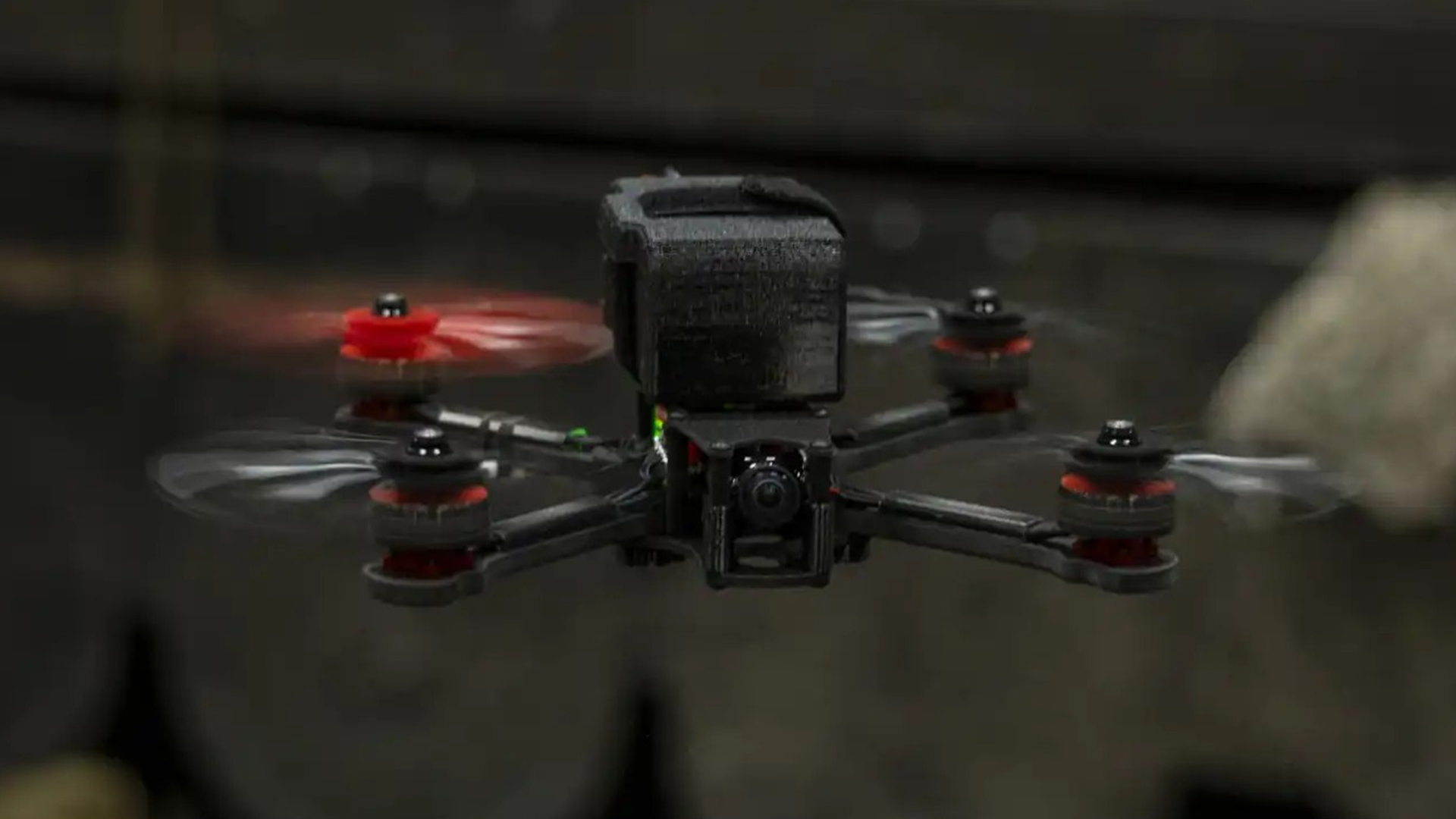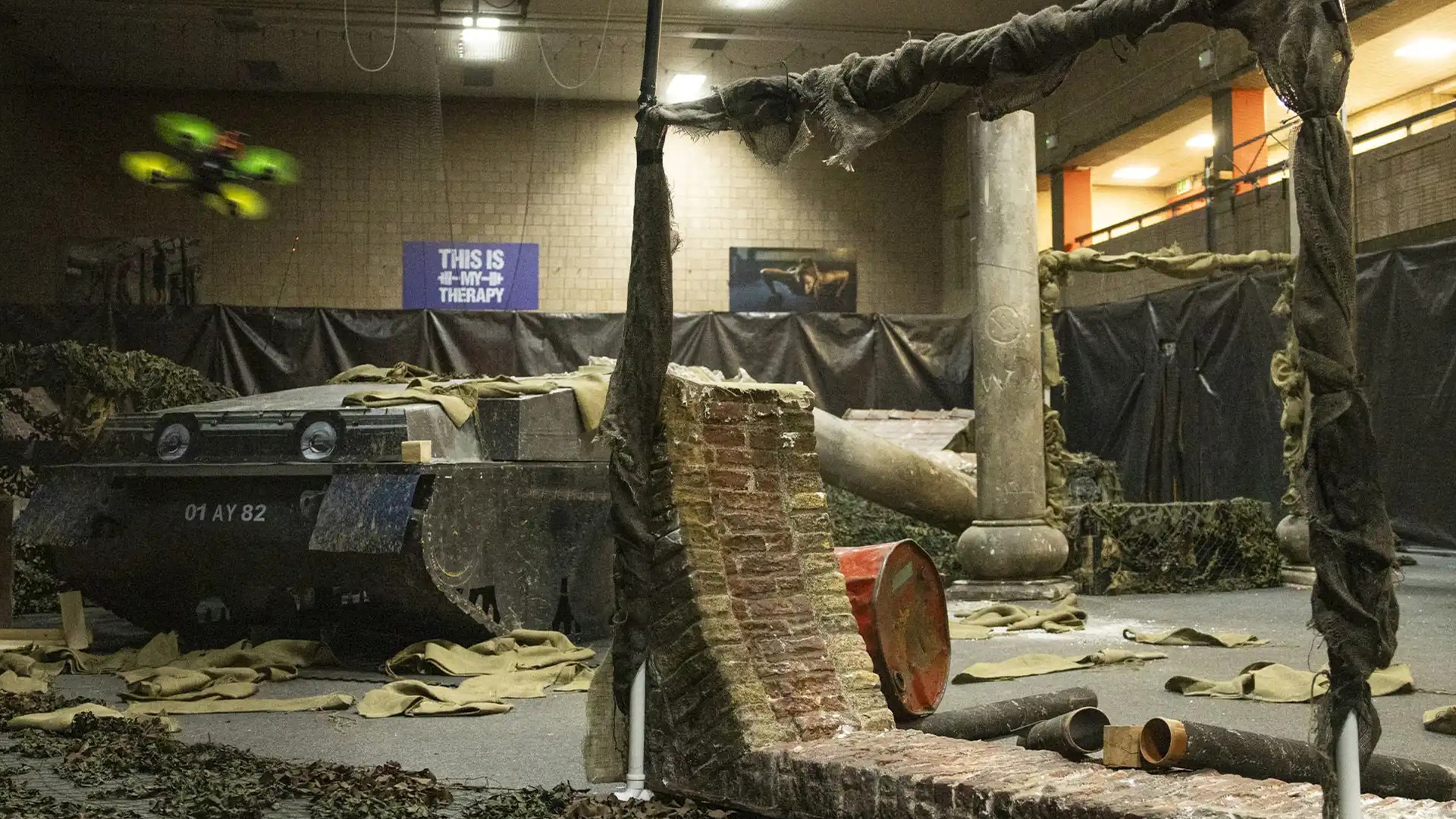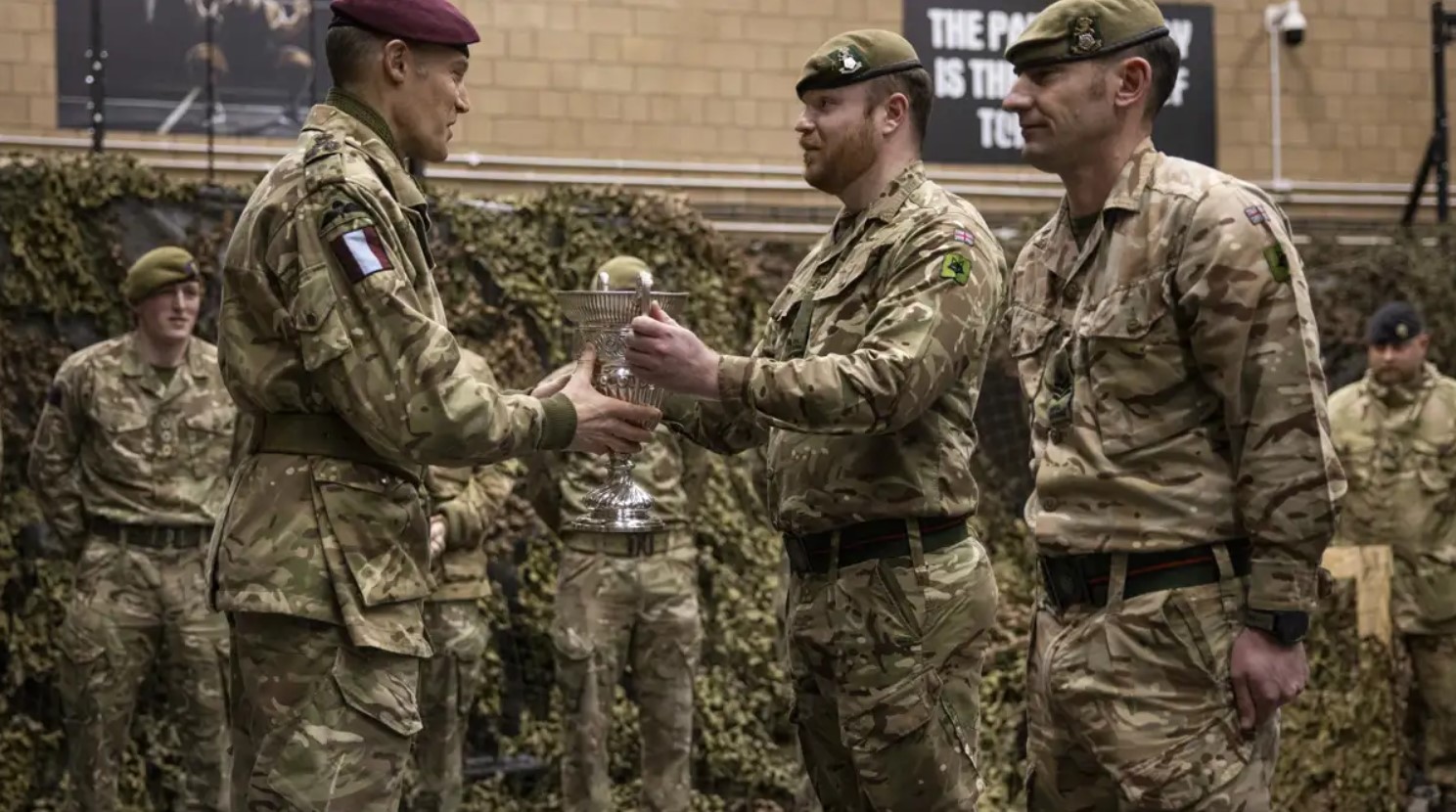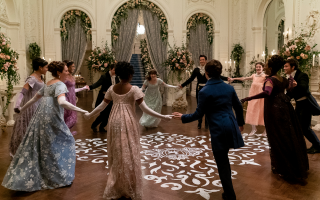
Ready player one? Soldiers take on intense drone race through realistic war-torn city scenario

All units from the British Army's Global Response Division, 1 UK Division, assembled from various locations across the UK and were tasked with competing in a 10-hour drone racing competition.
The event was uniquely designed to resemble a modern battlefield situated in a war-torn city.
Thirty teams, each with four members, were equipped with state-of-the-art first person view (FPV) hydrocarbon drones and point of view (POV) headsets.
The teams raced against each other through a complex battle zone filled with ruined buildings and damaged vehicles.
After navigating through sandbag-lined trenches in complete darkness, they confronted a brutal scene in what was considered 'enemy territory'.
They then collaborated as a team to conduct reconnaissance and gather as much intelligence as possible before safely extracting their drone from the area.

How useful are drones in modern warfare?
The use of drones has altered the dynamics of military operations, offered unique tactical advantages and enhanced the soldiers' operational efficiency in various combat scenarios.
Drones have been used by armies worldwide for various purposes, including surveillance, reconnaissance and targeted strikes.
The British Army is exploring ways in which they can be used more widely by a much broader range of soldiers.
It says testing soldiers in this way prepares them for future operational scenarios but also builds teamwork and raises morale.
The competition was fiercely fought with regiments and corps vying for maximum intelligence points and clear runs.
Panoramic viewpoints and CCTV allowed the other teams to watch the progress of their competitors and loud cheers erupted when time trials were beaten.

Drone racing in the British Army has previously always been classed as a hobby sport, but as current conflicts are proving, skillful drone operating capability can be key to operational success.
In Ukraine, for example, it is estimated that 80% of casualties on the battlefield are now because of drone activities.
That is why the British Army deliberately staged this competition in a hyper-realistic combat battlefield scenario, allowing the soldiers to be fully immersed and engaged in drone flying as a potential future operational skill, not just as a competitive sport.

It added an edge, complexity and excitement not experienced previously by the soldiers.
The winning team from 2nd Battalion the Royal Yorkshire Regiment was presented with a silver cup by Brigadier Mark Berry, Commander 16 Air Assault Brigade.
Coming a close second were 2nd Battalion the Parachute Regiment, with the Grenadier Guards placing third.
The competition allowed more than 100 soldiers to take part in a fun but challenging inter-divisional competition testing their abilities in this future operational warfare technique.
It also allowed commanding officers to scout potential drone operating talents in their units for future nurturing.
The event was organised by the 1st Battalion Grenadier Guards who, after five years on operational duties at home and overseas, will return to their ceremonial public duties role and mount their first King's Guard at Buckingham Palace.







